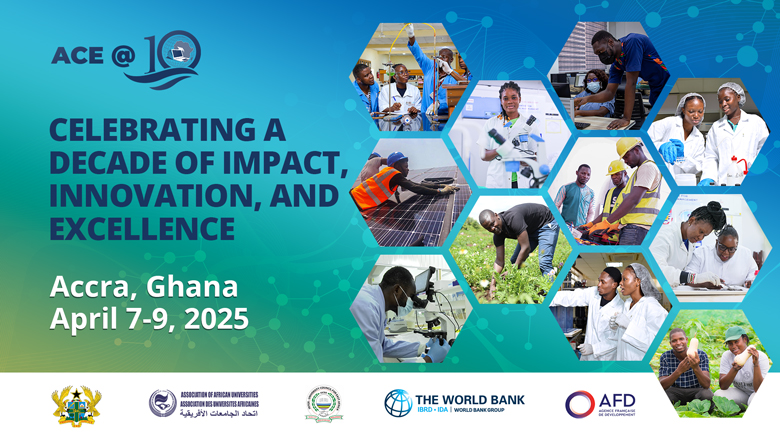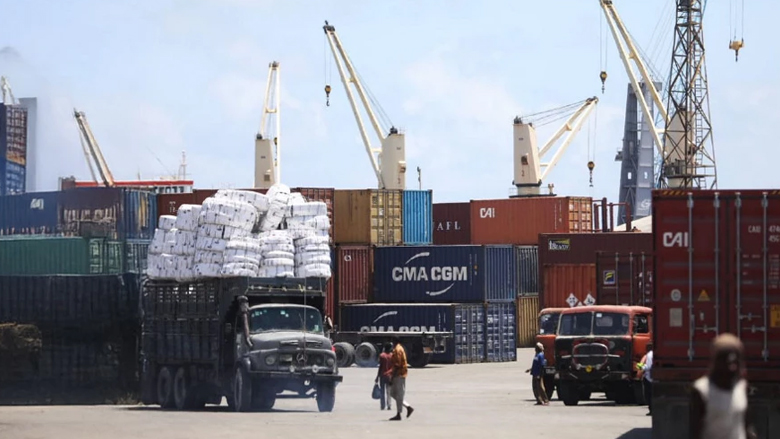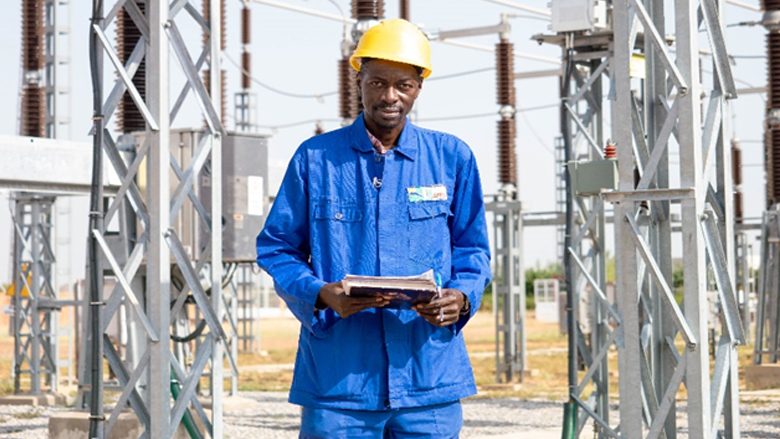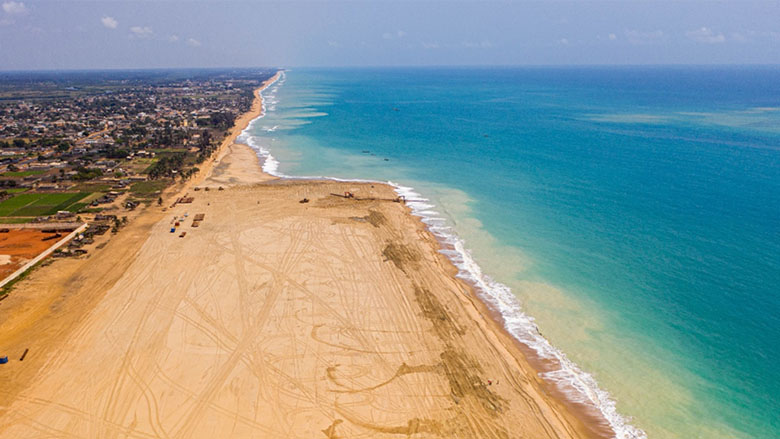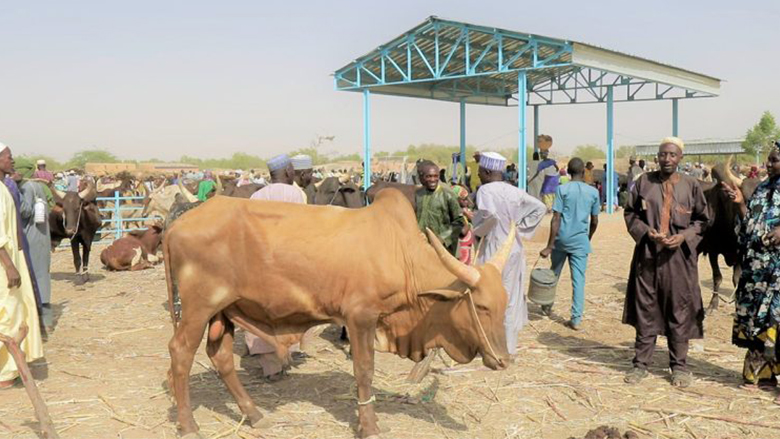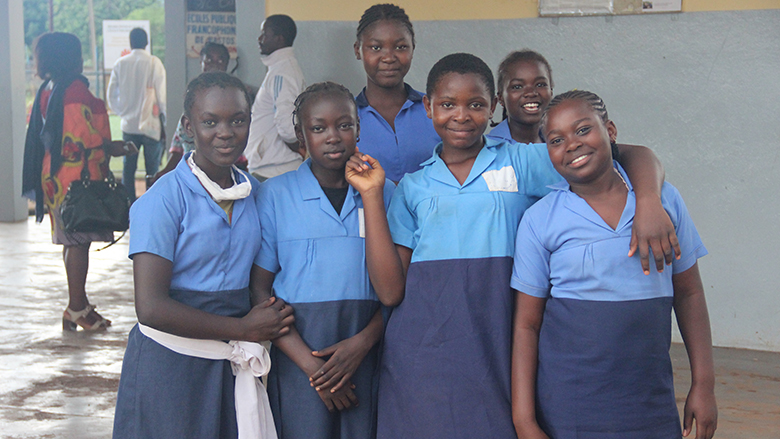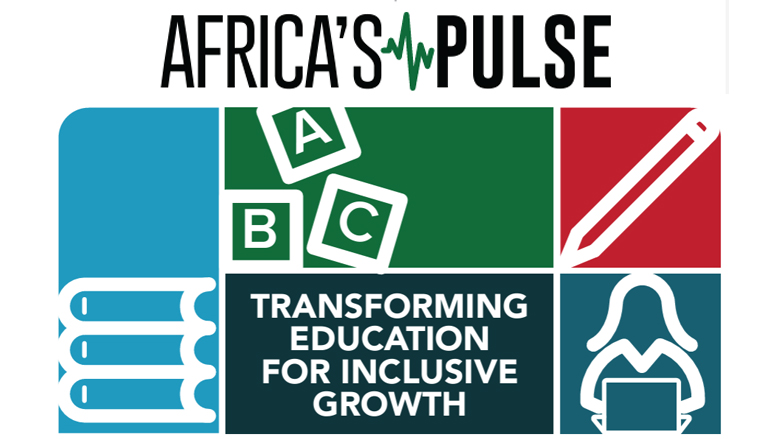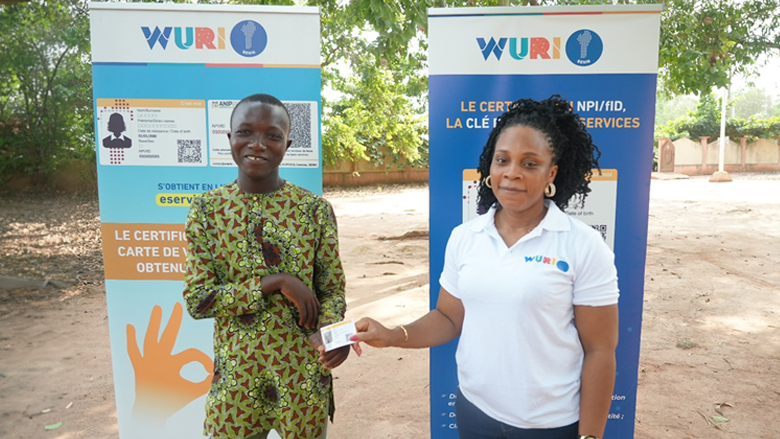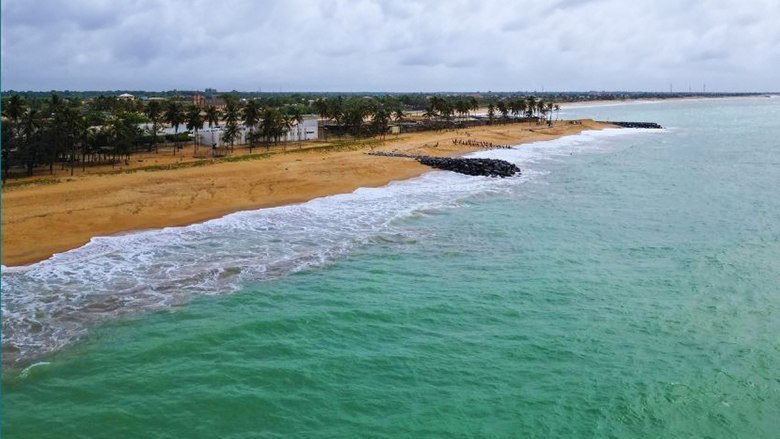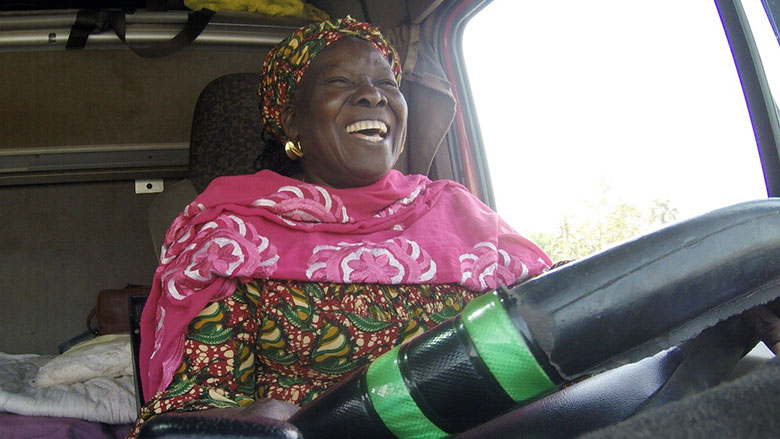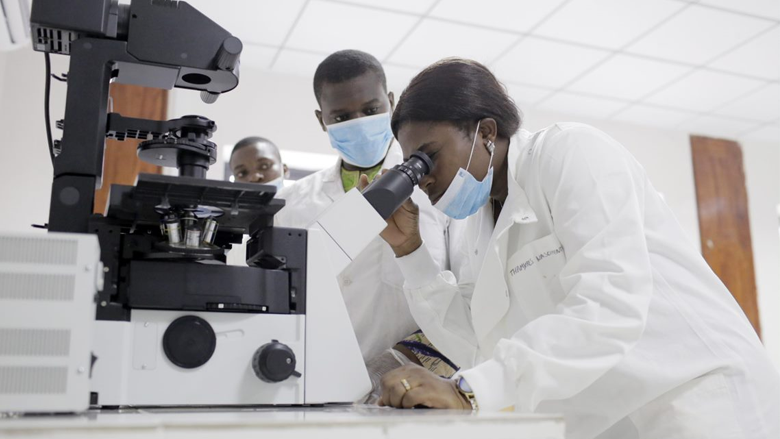The World Bank is collaborating with African countries and regional institutions to empower people, unleash trade, and optimize shared natural resources and economies of scale to achieve Africa’s transformation.

Africa Regional Integration
African countries are working together to address common challenges and harness their shared strengths to realize the continent’s potential market of 1.2 billion people. The World Bank Group is a key contributor to Africa’s regional integration.
Featured
Celebration of the 10th anniversary of the Africa's Higher Education Centers ...
The Africa’s Higher Education Centers of Excellence (ACEs), together with their partners, will get together to celebrate their 10th Anniversary in a high-level forum.
Guinea: Kadiatou's journey from forced marriage to education
With support from the Sahel Women's Empowerment and Demographic Dividend Project (SWEDD), Kadiatou and 105,703 other girls in Guinea have continued their studies with food scholarships, school kits, and extra classes. SWEDD has significantly reduced dropout rates among girls in Guinea, achieving a retention rate of 99.66% in 2024, surpassing the forecast of 80%.
Scaling Innovative Finance for Growth in the Horn of Africa
As we step into 2025, it’s a perfect time to reflect on the future of the Horn of Africa (HoA) and the opportunities ahead. In October 2024, we were part of the 22nd Ministerial Meeting of the Horn of Africa Initiative hosted by the World Bank Group (WBG), bringing together finance ministers from Djibouti, Ethiopia, Kenya, Somalia, South Sudan, and Sudan. Alongside ministers, development partners, and key regional players, we discussed the region’s economic challenges and explored the potential for innovative financial solutions towards a brighter, more sustainable future.
Powering Africa: The Transformational Impact of Regional Energy Projects in ...
The World Bank Group’s regional integration approach in the energy sector in Africa supports the development of more efficient and resilient regional electricity markets through the West African Power Pool (WAPP) master plan.
Blue Food and Blue Jobs are transforming livelihoods
The blue economy is a powerful driver for Africa's economic growth, especially in coastal nations. In 2019, the African Union estimated that the Blue Economy generated nearly US$ 300 billion for the continent and created 49 million jobs.
High-Level Forum on Pastoralism in the Sahel and West Africa
The Nouakchott+10 Forum marks a decisive step for the future of millions of people who depend directly on the vital sector of pastoralism and agropastoralism. In the face of these challenges, participants agreed to secure agro-pastoral land, improve land governance, and develop sustainable value chains to strengthen the resilience of pastoral and agro-pastoral systems.
From challenges to opportunities: transforming human capital in the CEMAC
Human capital is a cornerstone for sustained and inclusive growth. In today’s world, a nation’s wealth is shaped not only by its natural resources but also by the knowledge, skills, and health of its people. Human capital—the collective potential of individuals—is crucial to the transformation of African economies, and nowhere is this more evident than in the Central African Economic and Monetary Community (CEMAC) region.
Transforming Education for Inclusive Growth
The October 2024 edition of Africa’s Pulse reports a fragile economic recovery in Sub-Saharan Africa, with growth projected at 3% in 2024, up from 2.4% in 2023, driven by increased private consumption and investment. Inflation is expected to decline from 7.1% in 2023 to 4.9% in 2024 and 4.6% in 2025–26 due to tighter monetary and fiscal policies, stabilized currencies, and eased supply chain disruptions. Fiscal balances are improving as governments cut expenditures and raise revenues, but high debt service costs remain a challenge. The region's growth has been insufficient to reduce extreme poverty and boost prosperity, hindered by slow investment growth, conflicts, and climate change.
Identification System in Benin: Increasing Access to Services
The government of Benin embarked on a substantial effort between 2017 and 2018 to biometrically enroll about 90% of the population into the National Registry of Physical Persons. It also joined the World Bank-supported Regional West Africa Unique Identification for Regional Integration and Inclusion (WURI) project to develop a foundational digital identification (fID) system, building on earlier efforts to facilitate access to services and enhance inclusion.
The Tamed Sea: an alliance restored with coastal communities
WACA has financed some twenty cross-border structures covering 42 km, from Agbodrafo in Aného to Hillacondji and Grand-Popo.
Bringing forth water to combat food insecurity and climate change in the ...
PARIIS is the first regional project designed following the adoption of the Sahel Irrigation Initiative (2IS) by Heads of State in 2013. It focuses on the combined use of simple and affordable technologies, incorporating local know-how to irrigate farmlands and enhance their potential.
Lighting Up Africa: Nigeria Can Show the Way
In Nigeria alone, over 85 million people —more than 4 out of 10 Nigerians— are deprived of electricity. My trip to Abuja earlier this month reinforced what I already knew: the paradox of energy poverty in a land of plenty. Nigeria, an economic powerhouse with huge solar potential, has the largest electricity access deficit in the world. A shocking reality for a country beaming with energy.
Empowering Young Women in the Sahel: Key Insights from the SWEDD Project
Across the Sahel, young women are key contributors to the socio-economic development of their communities and countries. Empowered with access to better health services, schooling, economic opportunities, and participation in decision-making processes, they can play an even stronger role in economic growth, poverty reduction, improved health and education, and much more.
Making Fermented Milks in Kenya Safer - The Result of Local Research
Kenya is coming up with ways of improving the safe production of popular, traditionally fermented milk. Fermented milk is often produced in non-standardized, unhygienic conditions that carry a food safety risk. The Kenyan government is building local capacity to produce starter cultures that make milk fermented in traditional ways safer to drink and more commercial.

